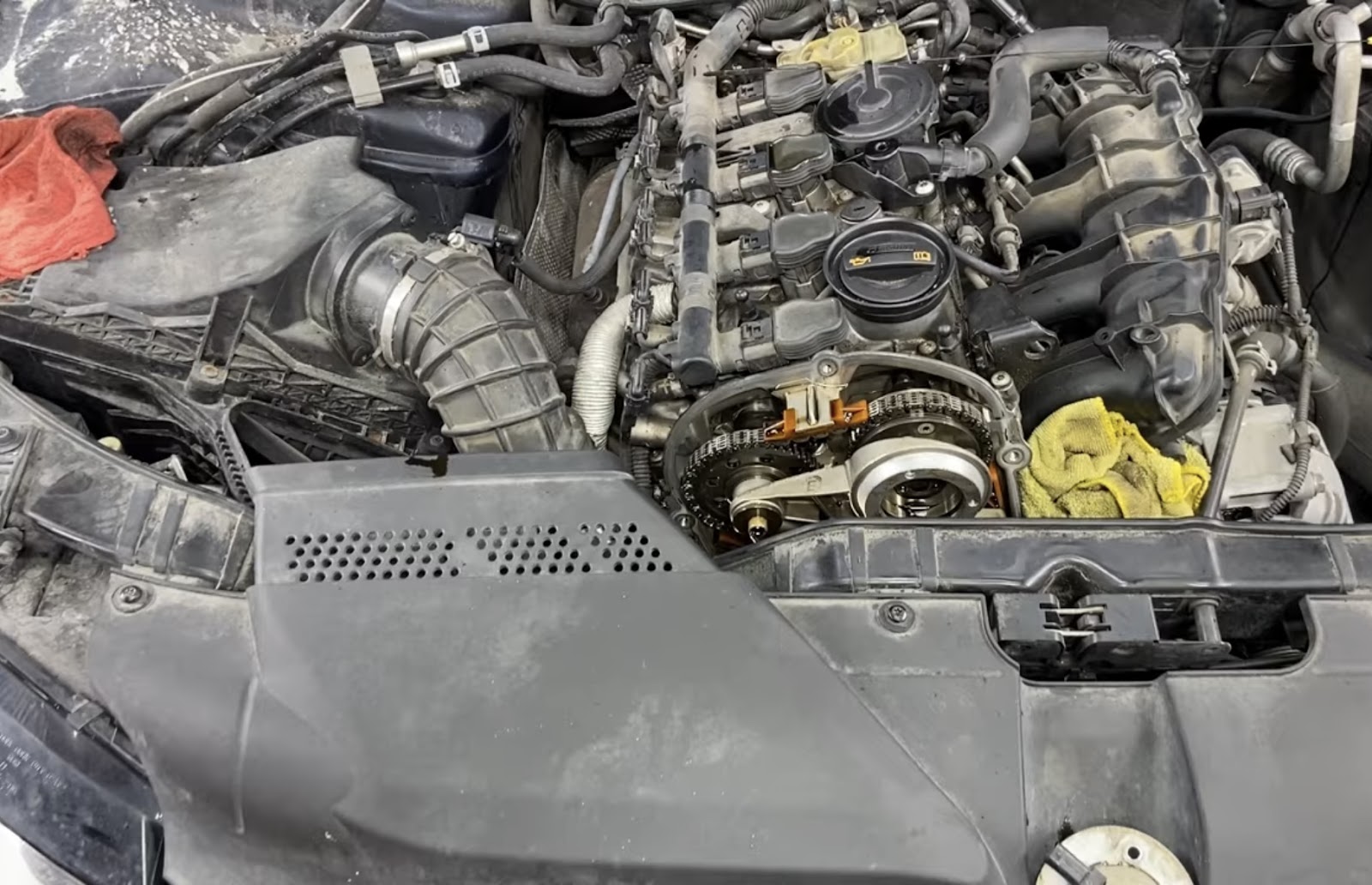When you hit the road with your trusty Volkswagen, the last thing you want is for mysterious engine troubles to spoil your journey. One of the critical components responsible for your car’s smooth performance is the camshaft adjuster magnet. This small yet vital part can sometimes act up, leading to a range of symptoms that might leave you scratching your head. In this article, we’ll delve into the common signs of a faulty VW camshaft adjuster magnet, helping you identify and address the issue before it turns into a bigger headache.
Understanding the Camshaft Adjuster Magnet
Before we dive into the symptoms, let’s take a moment to understand what the camshaft adjuster magnet is and what role it plays in your VW’s engine.
The camshaft adjuster magnet, as the name suggests, is an electromagnet that adjusts the camshaft’s position in relation to the engine’s crankshaft. This adjustment ensures optimal valve timing, leading to better engine efficiency and performance. The magnet works in harmony with the engine control unit (ECU) to regulate the camshaft’s position based on real-time data, keeping your engine running smoothly.

Common Symptoms of a Faulty Camshaft Adjuster Magnet
When the camshaft adjuster magnet starts to misbehave, it sends warning signals through various symptoms. Let’s explore the most common signs that might indicate a problem with this critical component.
- Rough Idle and Stalling. If you notice your VW experiencing a rough idle, meaning the engine is vibrating or shaking when at a standstill, it could be a telltale sign of a faulty camshaft adjuster magnet. Moreover, a malfunctioning magnet might lead to sudden stalling when you’re in traffic or at a stoplight, leaving you in a perplexing situation;
- Loss of Power. A decrease in engine power can manifest when the camshaft adjuster magnet fails to adjust the camshaft’s position correctly. As a result, your VW might struggle to accelerate or respond sluggishly when you press down on the gas pedal;
- Check Engine Light (CEL) Illumination. The infamous “Check Engine Light” might illuminate on your dashboard due to various issues, including a problematic camshaft adjuster magnet. When the ECU detects irregularities in the magnet’s performance, it triggers the CEL to alert you that something requires attention under the hood;
- Unusual Engine Noises. A damaged camshaft adjuster magnet may cause unsettling noises coming from your engine bay. You might hear strange rattling, clicking, or knocking sounds, especially during idling or low-speed driving;
- Reduced Fuel Efficiency. A properly functioning camshaft adjuster magnet helps optimize fuel consumption by ensuring efficient valve timing. However, when it goes haywire, your VW’s fuel efficiency might take a hit, leading to more frequent visits to the gas station.
What Causes Camshaft Adjuster Magnet Issues?
Understanding the potential causes behind camshaft adjuster magnet problems can help you take preventive measures and maintain your VW’s engine health.
1. Oil Sludge and Contaminants
Over time, engine oil can accumulate sludge and contaminants, which may clog the camshaft adjuster magnet or hinder its smooth operation. Regular oil changes and using high-quality oil can mitigate this risk.
2. Electrical Malfunctions
As an electromagnet, the camshaft adjuster magnet relies on proper electrical connections. Loose wiring or damaged electrical components can disrupt its functionality and cause various symptoms.
Addressing the Camshaft Adjuster Magnet Issues
When you experience any of the symptoms mentioned above, it’s essential to address the problem promptly to avoid further damage to your VW’s engine.
1. Diagnostic Check
If the Check Engine Light is on, take your VW to a reputable mechanic or dealership for a diagnostic check. They will use specialized tools to read the error codes and pinpoint the cause of the issue, which might involve the camshaft adjuster magnet.
2. Regular Maintenance
Stay on top of your VW’s maintenance schedule, which includes timely oil changes and inspections. Regular maintenance can prevent issues like oil sludge buildup, extending the life of crucial engine components.
Conclusion
Your VW’s camshaft adjuster magnet may be small, but its role in maintaining engine performance is significant. Being aware of the symptoms of a faulty magnet can help you take proactive measures to keep your car running smoothly on the road. If you ever notice rough idling, loss of power, unusual noises, or any other warning signs, don’t hesitate to seek professional assistance. With proper care and attention, you can ensure your VW stays in top-notch condition, providing you with many more enjoyable miles ahead.
